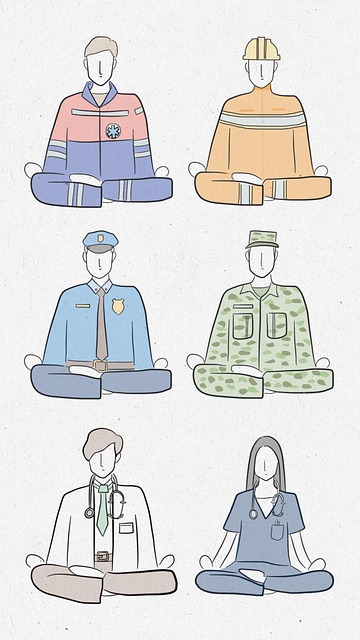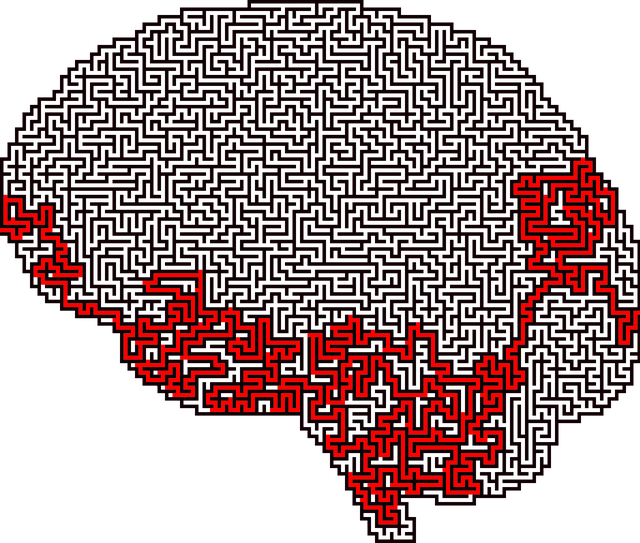Greenwood Village Gender Identity Therapy (GVGIT) provides specialized support for individuals experiencing trauma and seeking emotional healing related to their gender identity, offering evidence-based practices, safe spaces, and culturally sensitive resources. Their therapists facilitate stress reduction, depression prevention, and resilience building through individual or group counseling, empowering clients to reclaim their true selves while addressing systemic barriers. GVGIT is revolutionizing mental health care by prioritizing diverse communities and inclusive practices.
Trauma support services are crucial for individuals navigating the complexities of gender identity, especially in their impact on mental health. This article explores these needs, focusing on the innovative approach of Greenwood Village Gender Identity Therapy. We delve into understanding trauma and its unique effects on gender expression, highlighting the importance of specialized services. Key components of effective therapy will be examined, along with strategies to make accessible resources for all identities, emphasizing the transformative power of Greenwood Village’s model.
- Understanding Trauma and its Impact on Gender Identity
- The Role of Greenwood Village Gender Identity Therapy in Support
- Creating a Safe Space: Key Components of Effective Therapy
- Accessible Trauma Support Services: Reach and Resources for All Identities
Understanding Trauma and its Impact on Gender Identity

Trauma can significantly impact an individual’s sense of self and identity, including their gender identity. Greenwood Village Gender Identity Therapy recognizes that traumatic experiences can distort a person’s perception of themselves, leading to confusion or disassociation from their true selves. This is especially relevant for marginalized communities who often face additional stressors related to discrimination and social pressures.
Understanding the interplay between trauma and gender identity is crucial in providing effective support. For instance, a person who has experienced gender-based violence or discrimination may struggle with anxiety relief and emotional well-being promotion techniques. Burnout prevention strategies for healthcare providers are also essential, as they can contribute to creating a safe space for individuals to explore their identities without further trauma. Through specialized therapy, individuals can begin the process of healing and reclaiming their sense of self in a supportive environment.
The Role of Greenwood Village Gender Identity Therapy in Support

Greenwood Village Gender Identity Therapy (GVGIT) plays a pivotal role in providing specialized support for individuals navigating trauma and seeking emotional healing processes. This therapeutic approach is particularly tailored to address the unique challenges faced by those exploring their gender identity, offering a safe space to process past traumas and promote overall well-being.
The therapists at GVGIT employ evidence-based practices to facilitate stress reduction methods and depression prevention strategies. By integrating these techniques into therapy sessions, they empower clients to develop coping mechanisms, enhance resilience, and foster positive self-image. Through individual or group counseling, GVGIT creates a supportive environment where individuals can explore their emotions, understand their experiences, and work towards trauma resolution, ultimately contributing to improved mental health and greater life satisfaction.
Creating a Safe Space: Key Components of Effective Therapy

Creating a safe and supportive environment is paramount in effective trauma therapy, offering clients a sanctuary to process their experiences freely and openly. This concept is at the heart of Greenwood Village Gender Identity Therapy, where therapists prioritize creating a non-judgmental, empathetic space tailored to each individual’s unique needs. A key component involves fostering trust through consistent, genuine interactions, allowing clients to feel seen and heard without fear of rejection or further trauma.
The therapeutic process benefits from incorporating various techniques, such as Social Skills Training, which helps individuals navigate interpersonal interactions with newfound confidence. Additionally, Mental Health Policy Analysis and Advocacy plays a crucial role in ensuring access to accessible and culturally sensitive resources, addressing systemic barriers that may hinder recovery. Through these integrated approaches, mental health professionals can offer comprehensive support, fostering not just healing but also long-term resilience.
Accessible Trauma Support Services: Reach and Resources for All Identities

In today’s world, accessible trauma support services are more crucial than ever to cater to diverse communities, including those with unique identities. Greenwood Village Gender Identity Therapy leads the way in providing specialized care tailored to individuals navigating mental health challenges while embracing their authentic selves. By recognizing and addressing the specific needs of this demographic, they contribute significantly to reducing the stigma surrounding mental illness, especially within marginalized communities.
The reach of these services extends far beyond traditional therapy settings, leveraging various resources to ensure cultural competency among healthcare providers. This includes comprehensive training programs that equip professionals with the skills to offer empathetic support while navigating complex issues like gender identity and expression. Moreover, compassion cultivation practices are integral to these initiatives, fostering an environment where individuals feel seen, heard, and valued, ultimately enhancing their healing journey.
Greenwood Village Gender Identity Therapy plays a vital role in providing accessible trauma support services, addressing the unique needs of individuals navigating gender identity while healing from traumatic experiences. By creating safe spaces and incorporating key components of effective therapy, this approach ensures that all identities have resources to heal and thrive. Understanding the impact of trauma on gender identity is crucial, and such specialized services empower folks on their journeys towards recovery and self-discovery.














